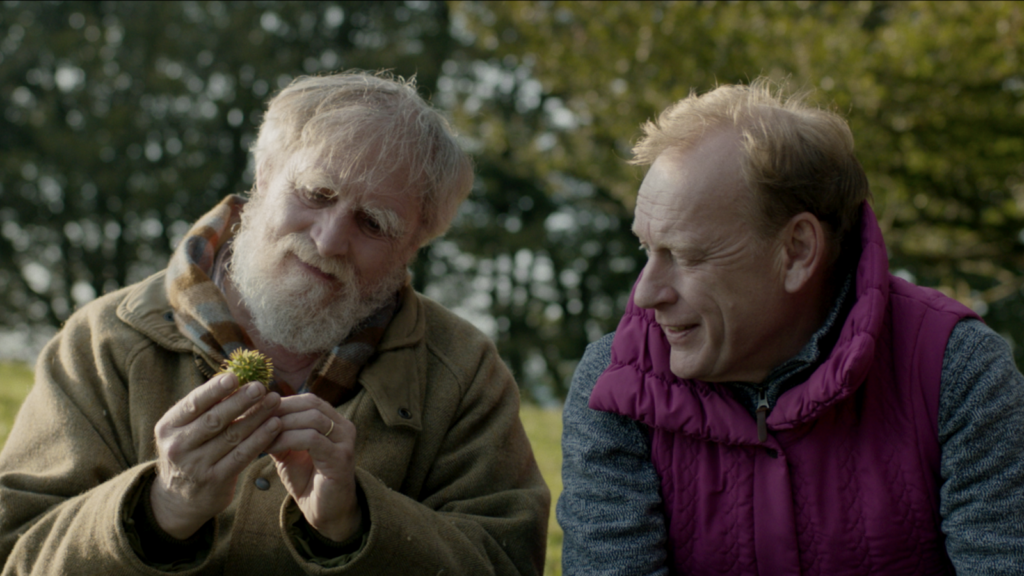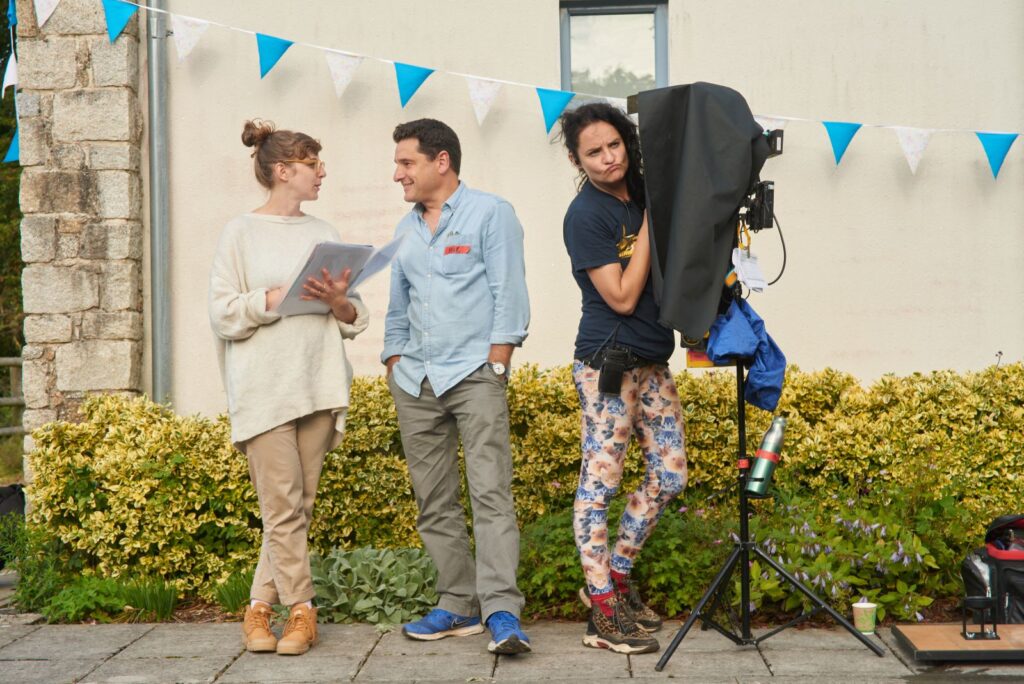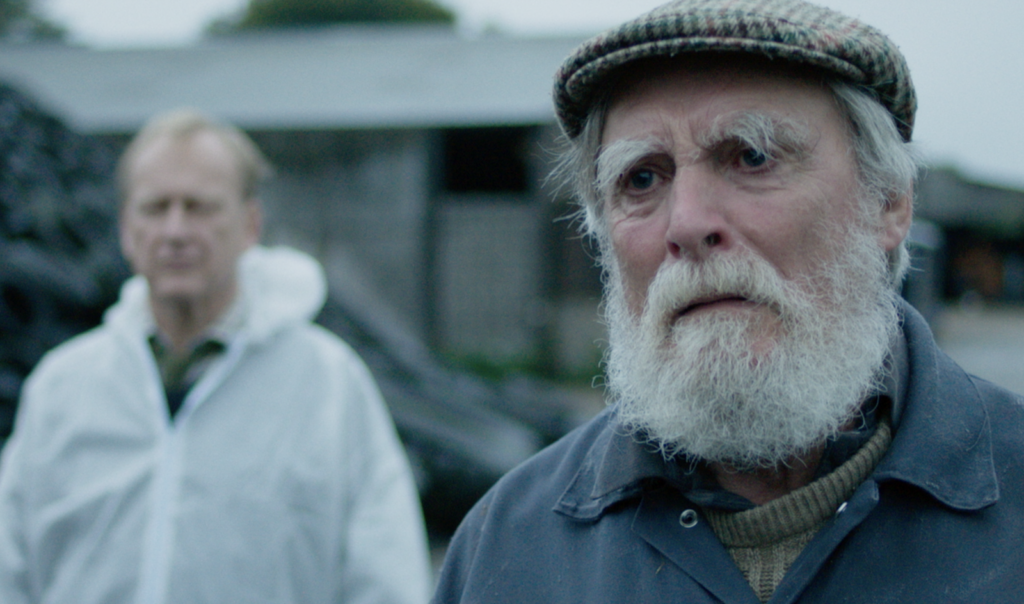Moving film adaptation depicts emotional toll of foot-and-mouth outbreak
25th August 2023
The screen adaptation of Bea Roberts’ multi-award-winning stage play And Then Come the Nightjars is set to land in cinemas soon, bringing viewers a heart-warming tale of friendship and survival set against the backdrop of the infamous foot-and-mouth outbreak. Farmers Guide chatted with film director Paul Robinson for an exclusive behind-the-scenes look.
Many farmers are still haunted by the horrors of the 2001 foot-and-mouth epidemic, which saw 6.5 million animals slaughtered and burned in a desperate attempt to halt the disease, caused the postponement of a general election, and cost the UK economy an eye-watering £8 billion.
Inspired by the personal experiences of West Country playwright Bea Roberts, And Then Come the Nightjars tells the story of an unlikely friendship between a Devon farmer and the vet who is assigned to cull his beloved herd.
In the screen adaptation, Nigel Hastings and David Fielder reprise their hugely successful on-stage roles as Jeff the vet and Michael the farmer, whose captivating dynamic brings to life the emotional journey of resilience, loss, and the unbreakable human spirit in the face of adversity.
In an exclusive interview, director Paul Robinson told Farmers Guide the film goes beyond the impacts of foot-and-mouth to encompass its bigger significance in terms of small-scale farming and the rural way of life.
“It’s not about foot-and-mouth, it’s one of the inciting incidents at the beginning of the story, but really, it’s about the bigger issues of farming and the way of life associated with farmers.
“At the same time, it’s a story about male friendship and how men can’t really talk to each other emotionally, how they just banter with each other, but underneath all that is real heart and sentiment and feeling, and that was just a story I hadn’t seen before.”

David Fielder (left) and Nigel Hastings (right) portray protagonists Michael and Jeff on the screen.
Although authenticity was central to planning and executing the film, Paul emphasized it should not be viewed as a true representation of real-life events.
“[The film] takes a very thin and, in particular, personal slice of two people’s lives, but the reason why one is a farmer and one is a vet is because it sets up a relationship at the beginning of the film that is going to be really tested,” he explained.
Paul went on to say that much of the drama in the film stems from the fact that it was often local vets who were obliged to cull herds, creating a bizarre scenario where people who drink in the pub together are put in a position of tension with each other.
While this was not the case in every community, it reflects the experiences of the play’s writer Bea Roberts, whose father worked as a farm vet during the outbreak.
The journey from stage to silver screen
In 2014, the original play won the inaugural Theatre503 International Playwriting Award, launched by Paul himself who was the theatre’s artistic director at the time.
“It was a unanimous vote by the judges,” he said. “It just blew me away, it was a really compact, hour and ten piece that spanned over 10 years.”
With the award came the promise to produce the play and the rest, as they say, is history.
According to Paul, the idea to adapt the play came from Nigel Hastings, who works as an actor and script editor for Finite Films. He worked closely with Bea Roberts to produce the screen adaptation, which retains over 95% of the original words from the stage play.
Having directed the play, Paul was then invited to direct the film, marking his debut on the silver screen. He said working with the same principal actors made the job a lot easier, saving the cast and crew about three weeks of rehearsal work.
The authenticity factor
When researching for the film, Paul and the actors visited Meldon Farm in Dartmoor to speak with Phil and Mandy about their experiences having lived through the outbreak, which he said became a very emotional exchange despite not starting that way at all.
“We drove away knowing exactly who we’re doing this play for and what experience we’re trying to represent. We went back to Phil’s farm to shoot it, and knowing it happened on that soil added a whole other element.”
Phil and Paul worked closely throughout the production of the film to achieve the level of authenticity required for the silver screen and convey the joys and hardships of life on a working farm.
“My aim was to make sure people were left smelling the manure and realising how much hard work it is working on a farm as opposed to rural idylls that we get in countryside tourism,” he added.
Paul’s other objective was to make the countryside the third character in the piece, bringing it alive in all its beauty for the nation to admire.
A homage to the rural community
Growing up in semi-rural West Kent, Paul spent a considerable time on farms before becoming involved in theatre, which instilled in him a deep love for the countryside and admiration for the rural community.
While the film is dedicated to all the farmers and people whose livelihoods were impacted by the foot-and-mouth outbreak, he said at its deepest level, it speaks to those who have a relationship with farming and the land, as opposed to people who don’t.
It also pays a tribute to enduring and resilient rural communities, who always find a way of getting through adversity and doing it with humour.
“I think a lot of us live in a very urban bubble, and we just do not get it. And we don’t also get how important the land is to us, we expect food to appear from nowhere, and I’m just trying to make sure we don’t forget those things,” Paul concluded.
Ahead of the film’s theatrical release, And Then Come The Nightjars will have special Q&A screenings at Chichester Film Festival with Nigel Hastings, David Fielder and Paul Robinson on 25th & 26th August.

Paul Robinson (middle) speaking with the crew on set.


